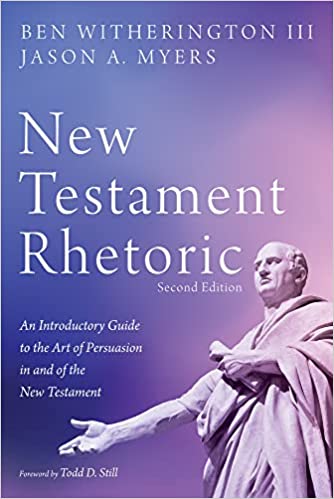Here is a link to an interview I did almost ten years ago with the Logos crew about how to approach the relationship between Scripture and theologizing in a particular theological tradition. It also deals with the issue of the authority of Scripture. The interview was done with Jayson Bradley in March of 2012.
—–
Logos: What are the risks of reading the Scriptures through a particular dogmatic lens? Do you see any benefits?
Dr. Witherington: I honestly don’t see any benefits to reading Scripture through a dogmatic lens. Over and over again it leads to eisegesis rather than exegesis, a reading back into the text things that are not there and reflect a later era. It’s called anachronism.
For example, I was having a conversation with a Greek Orthodox brother the other day who wanted to insist that Jesus’ dialogue with Nicodemus was about the Christian theology of baptism—”born of water and the Spirit.” Besides the fact that historically such a conversation surely was unlikely to happen between two early Jews. (after all, there was no church or Christian baptismal practice yet), there is the further problem that the very next verse explains that ‘water’ here refers to what happens at physical birth (flesh gives birth to flesh) and then Spirit is the one who produces “the new birth” or “being born again.” The discussion is indeed about the necessity of conversion even for devout early Jews.
Logos: Many Christians are raised or educated within specific theological frameworks, each with its inherent strengths and weaknesses. Assuming that your tradition is orthodox, how do you maintain the tension of honoring your background while allowing Scripture the freedom to contradict and challenge your beliefs?
Dr. Witherington: I don’t think your primary concern should be with the theological tradition you are raised in. Your primary concern should be your faithfulness to God’s Word wherever that leads, even if it contradicts things you were taught. I think you should value your tradition but critique it in light of the Bible.
Logos: Theology often comes out of a wrestling match between the theologian, his presuppositions, and Scripture. Of the five books in the Ben Witherington III Collection, which one was the biggest wrestling match for you?
Dr. Witherington: Clearly, the most controversial one is The Problem with Evangelical Theology. In that book I argue that all Evangelical traditions are most apt to stretch Scripture or misinterpret it when they try to say something distinctive. In other words, all Evangelical traditions fall short of full conformity to Scripture—whether we are talking about Calvinism, Arminianism, Pentecostalism, Dispensationalism, or any other ism.
Logos: What part do other believers play in challenging the way we interact with Christ through Scripture? How do we stand on our convictions and challenge each other without getting contentious and divisive?
Dr. Witherington: I find it invigorating, a sort of “iron-sharpens-iron” situation, when orthodox Christians of varying views challenge and have friendly debates about things. It helps us see our strengths and weaknesses, and, if it is done in a charitable manner, can be helpful to all. But the ruling principle is speaking what you see to be the truth in love, not in a partisan spirit. All persons who have a high view of Scripture have much to learn from each other, and we should all admit our knowledge is partial and incomplete. Humility pills should be taken all around when we discuss these things. (Below are links to how you can get the Witherington bundle of Baylor books, and a course on Johannine Literature)
https://www.logos.com/product/17595/ben-witherington-iii-collection
https://www.logos.com/product/42481/mobile-ed-nt221-the-wisdom-of-john-a-socio-rhetorical-commentary-on-johannine-literature













